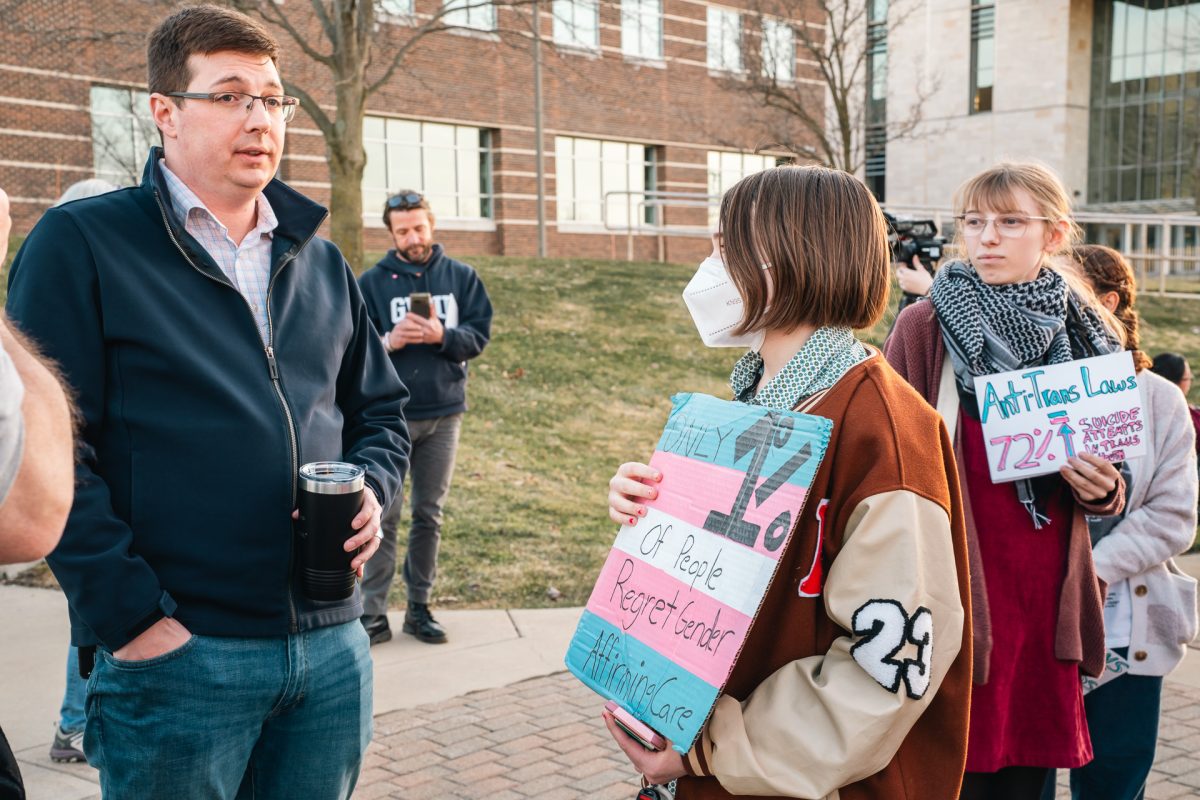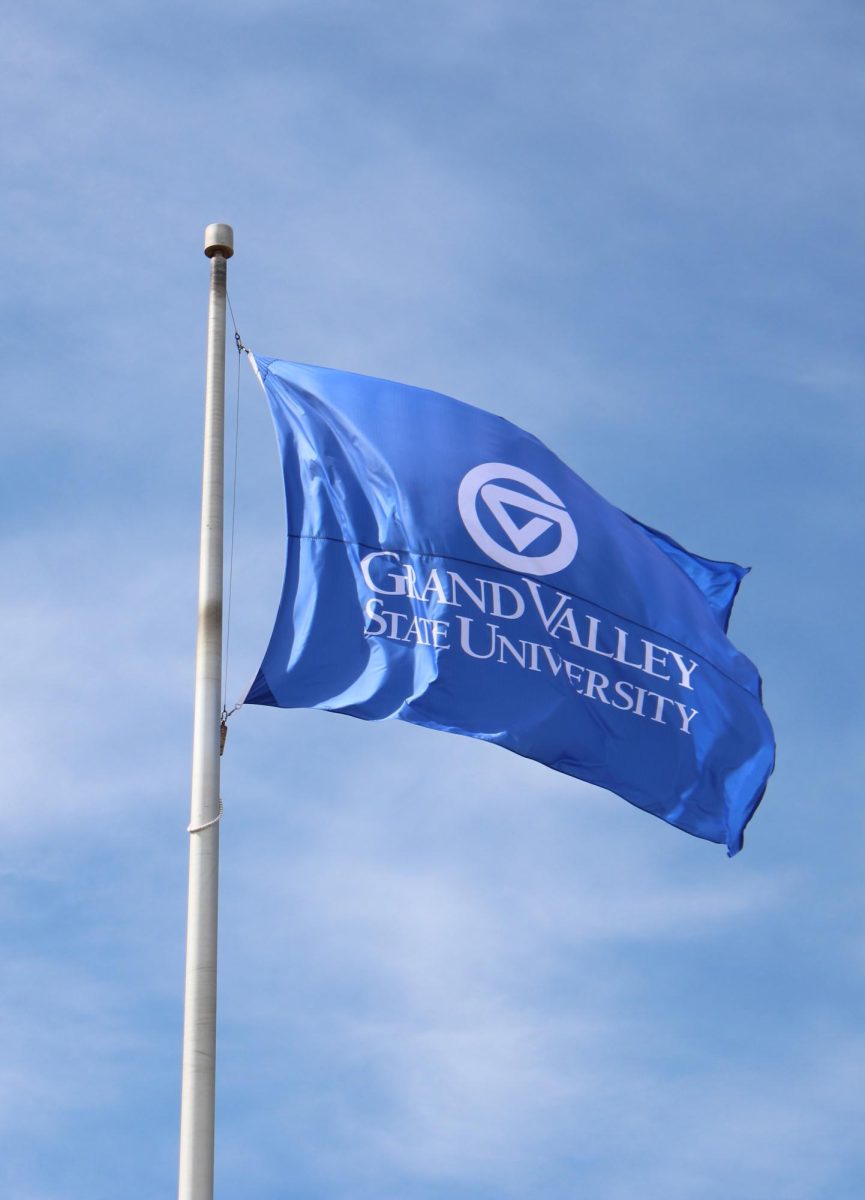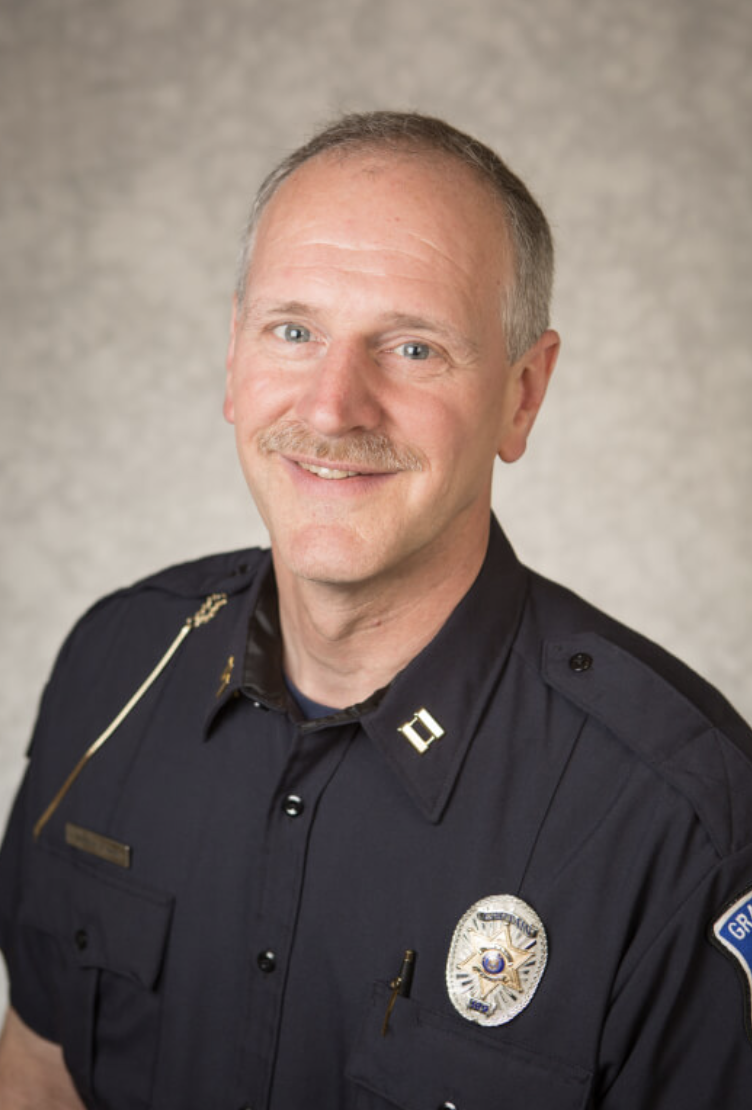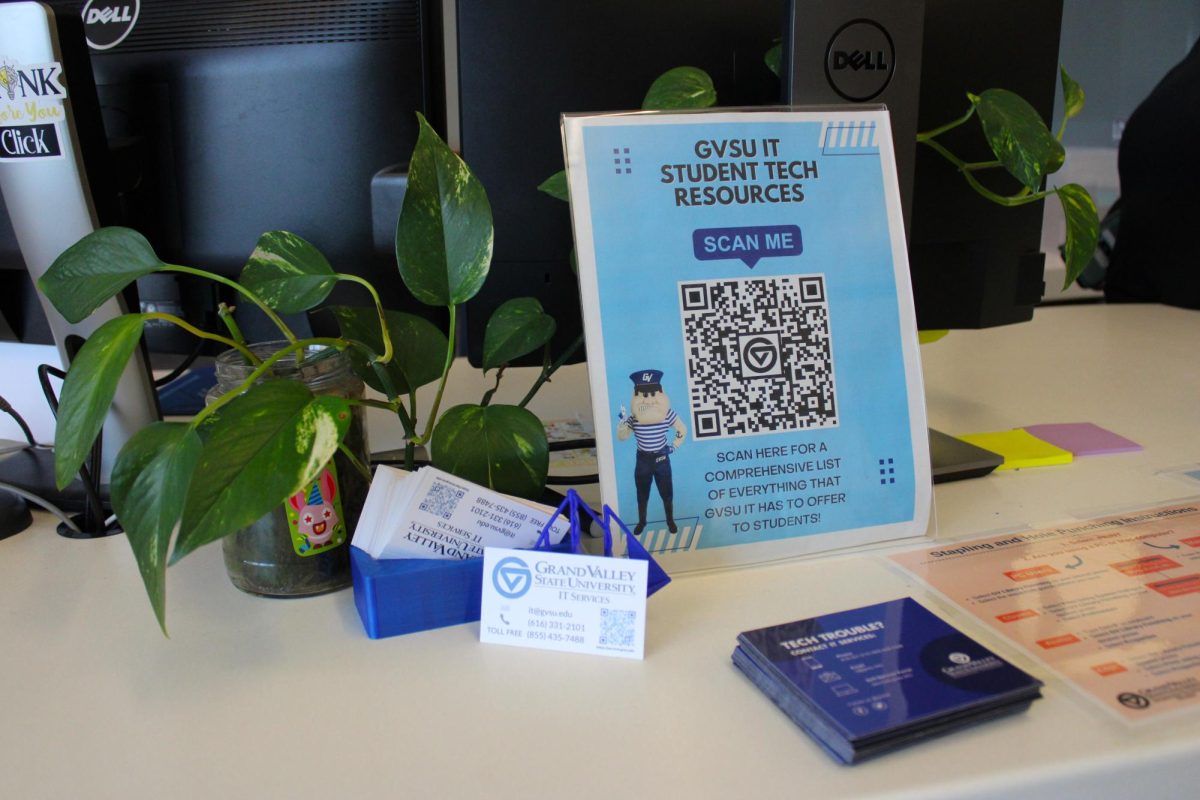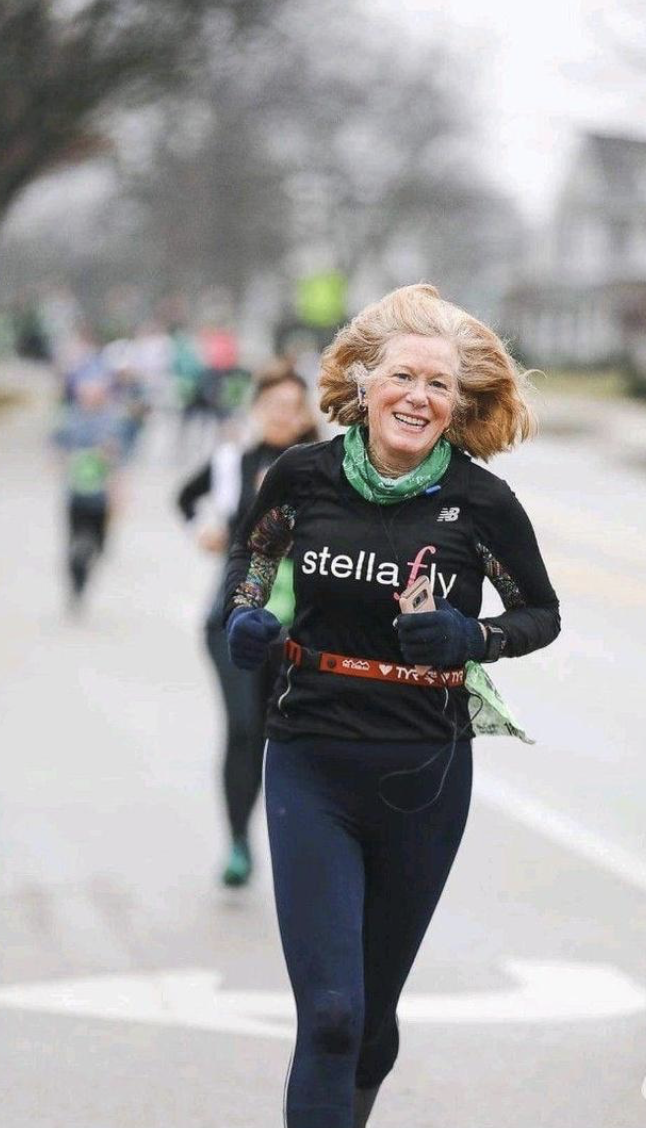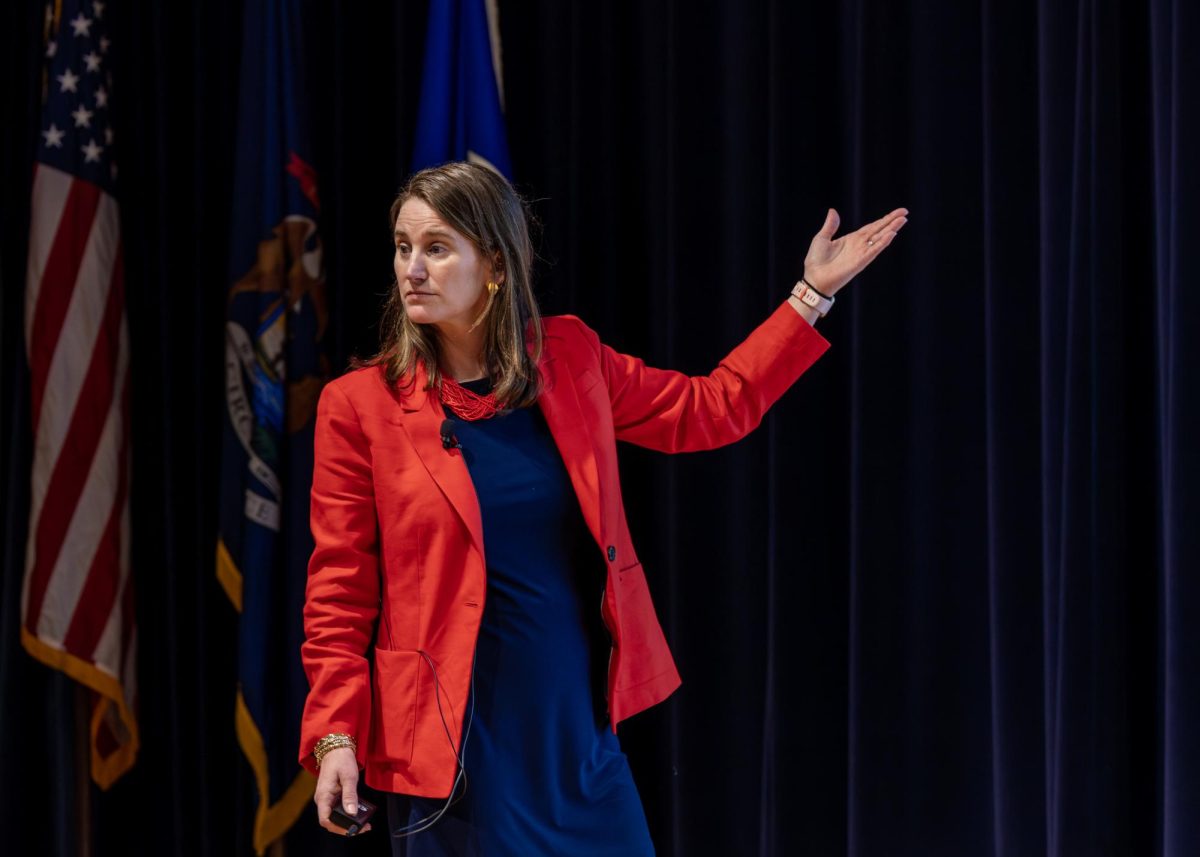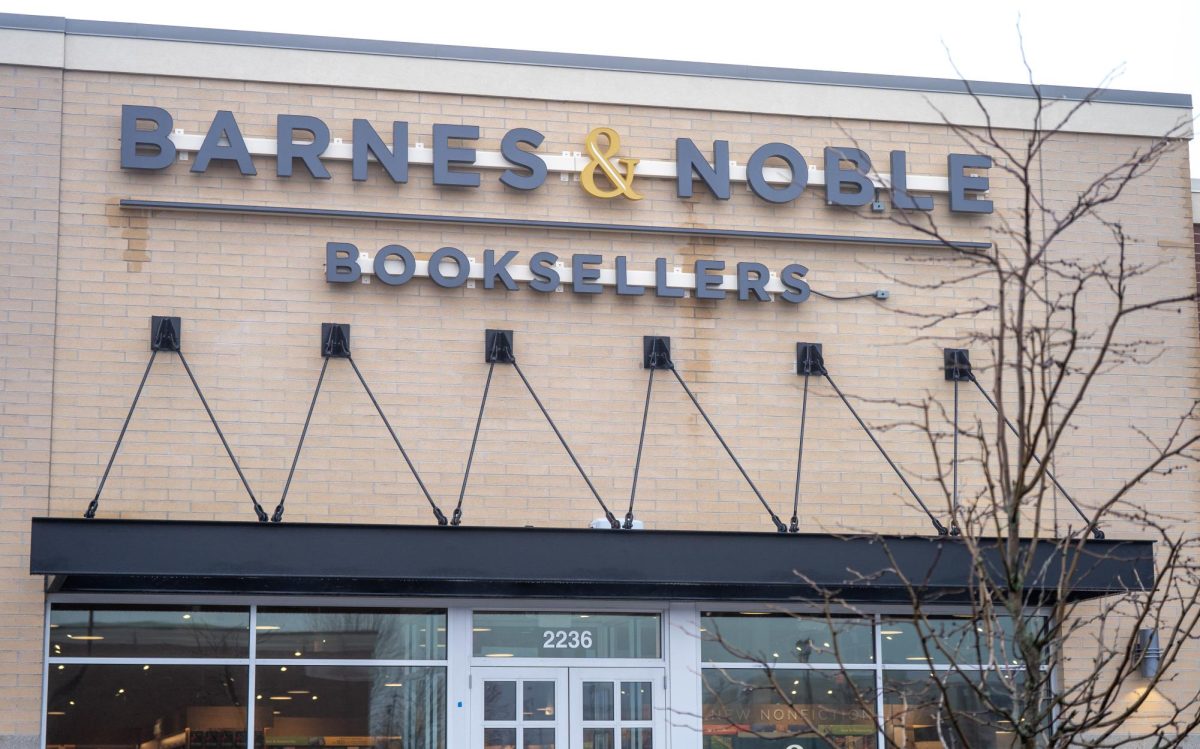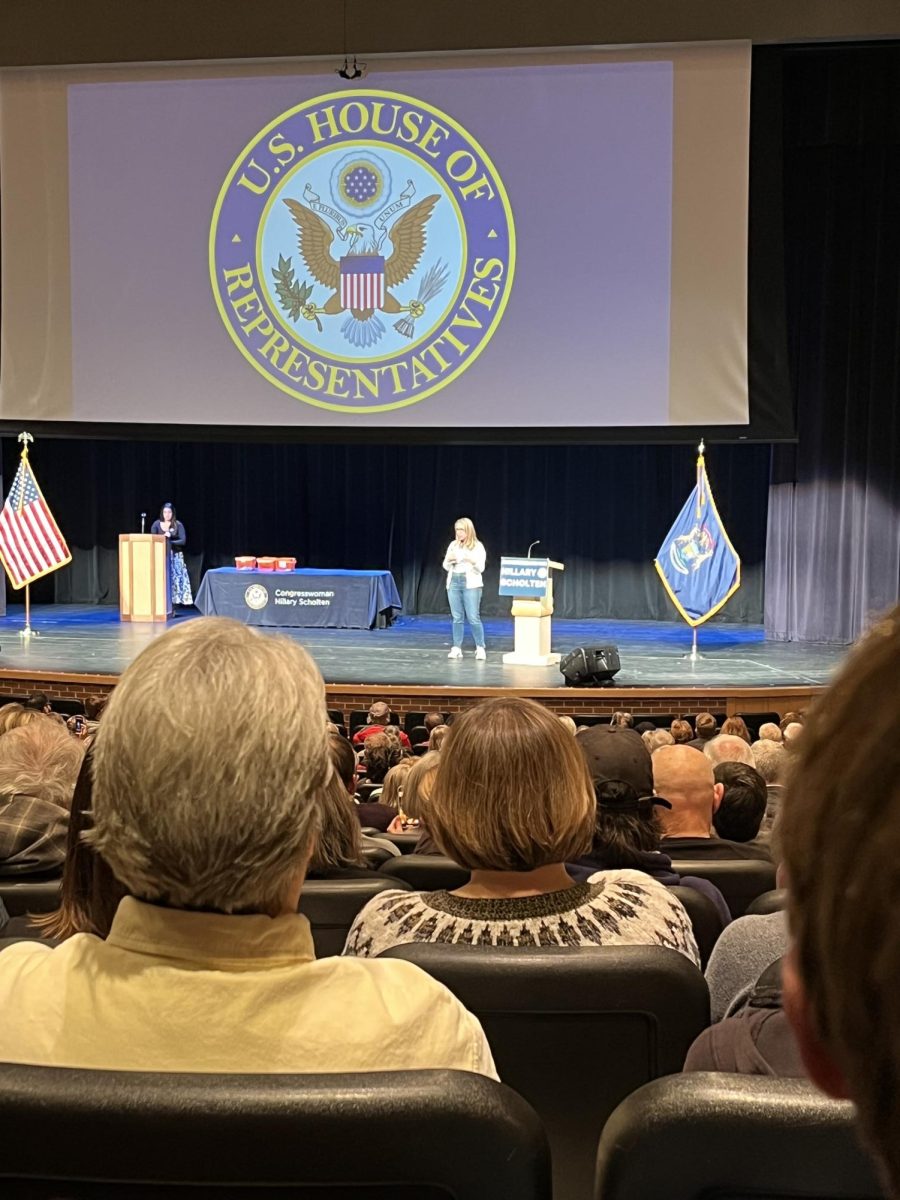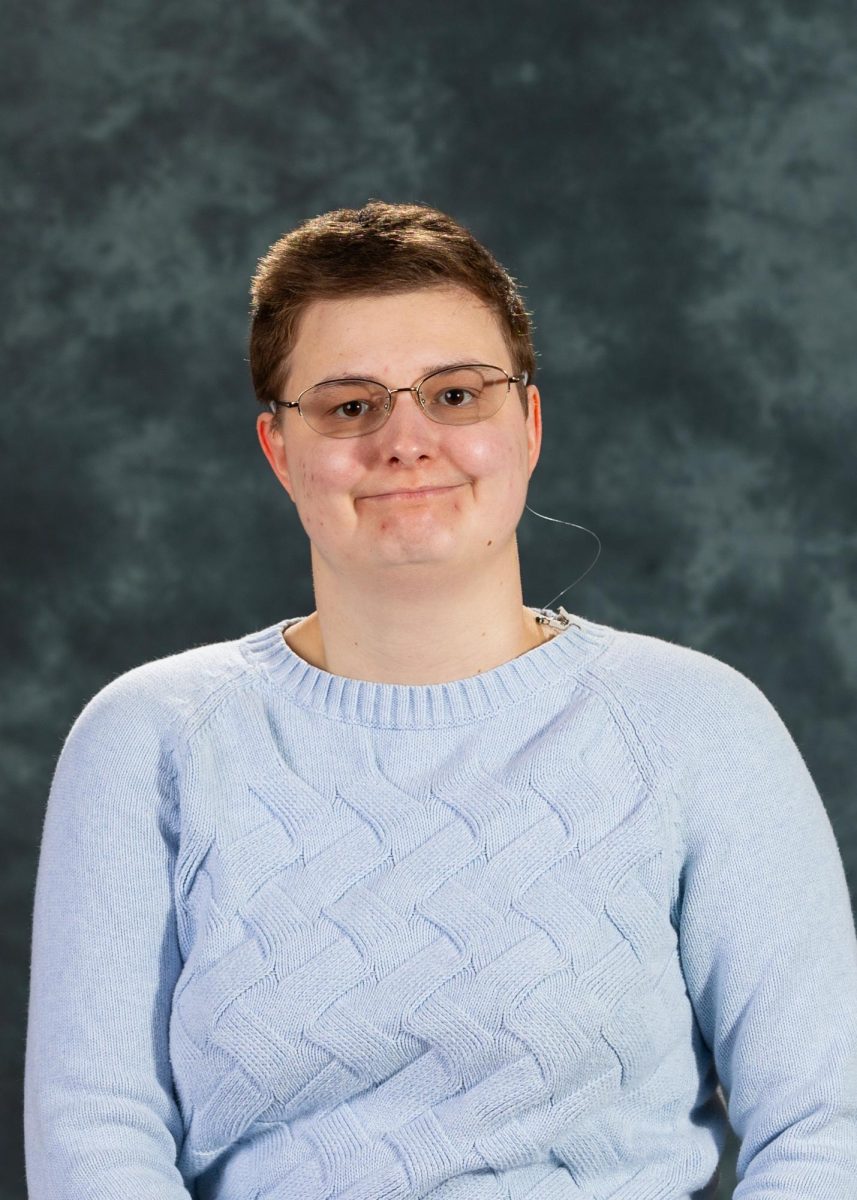Grand Valley State University students, faculty and staff addressed social justice and inequality through education at the yearly Teach-In, which took place Nov. 13-14. This year, there were a multitude of presentations covering topics from climate change, book banning, colonialism and disability.
The Teach-In promotes education on social justice issues and systems of oppression, as well as motivating action, which was reflected by the series’ theme “Power, Privilege and Difficult Dialogues.” Teach-Ins began in 2014, prompted in part by the University’s 2011 Campus Climate Survey. Students in the survey identified the importance of faculty response to intentional or unintentional biases, specifically in the classroom. According to the Teach-In’s webpage, the University encourages “contributions with an intersectional framework that take into account the various ways that race, class, gender identity, sexual orientation, religion, etc. impact lived experience.”
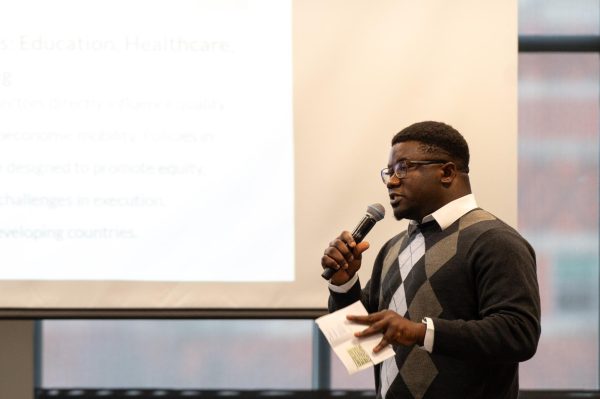
This year’s Teach-In was opened with a plenary session by the Native American Advisory Council that discussed history and included a land acknowledgement. The closing plenary concluded with two poster sessions and a student reflection panel. The poster sessions entailed presentations on DEI in physical therapy and healthy dietary choices. During the reflection panel, students shared how they will enact change based on what they learned at the Teach-In.
GVSU students Noah Prysock and Avery Cica presented with two faculty members from the Battle Creek Pipeline Scholarship Program, Estefany Paniagua-Pardo and Charlotte Balkus, as well as graduate student Ana Estrella. Their presentation was titled “The Allegory of the Cave: Being a First-Generation College Student at GVSU from Battle Creek, Michigan.”
The group discussed Greek philosopher Plato’s “Allegory of the Cave” in comparison to their lives in Battle Creek, examining how education can be used for transformation and enlightenment. The students shared their educational journeys from Battle Creek to GVSU, analyzing the Pipeline Scholarship’s influence on the perception of education in Battle Creek.
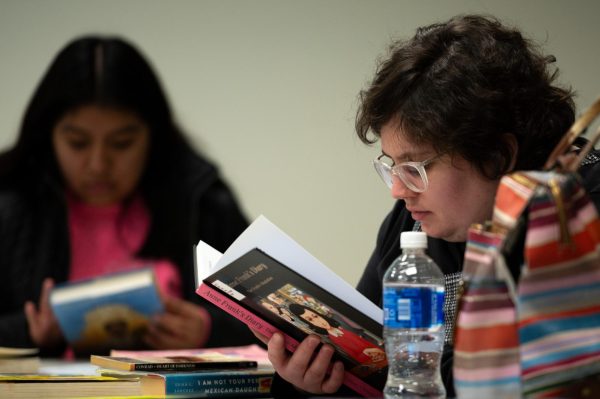
Prysock said the main goal of their presentation was to promote mentorship, give back to the community and spread enlightenment. He said the group aimed to “raise awareness about inequity and systems of oppression.”
“Both Avery and I have lost loved ones, been silenced and bullied, and the expectations to succeed from our loved ones weren’t high,” Prysock said. “Our motivation now is to go back to the ‘cave’ and have more people (enact change) by spreading positivity and mentorship to improve the community. We wanted to remind the audience that they have a voice even when life is hard, but to never give up and keep going.”
Caitlin Yanosko, adjunct instruction librarian at GVSU, and Katie Alphenaar, head of reference and information at Loutit District Library in Grand Haven, presented “Breaking Banned: Strategies for Empowered Conversations around Book Challenges.” Their Teach-In covered the rise of book bans in public libraries, how bans affect communities and how to manage difficult conversations with constructive dialogue.
Yanosko said she wanted to use her experience working in a library to share conversational strategies geared toward potentially sensitive topics.
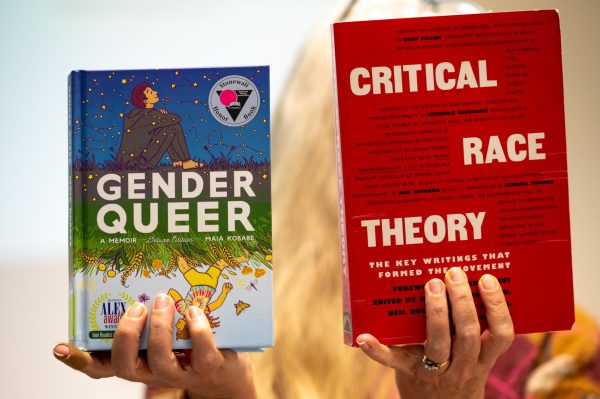
“This is a very relevant topic at this moment in time,” Yanosko said. “West Michigan’s Patmos library faced closure when initial millage funding did not pass due to pressure from the community because they carried LGBTQIA+ books. Other libraries face similar pressures, and in some states, book bans are in effect on a large scale, especially for school libraries.”
Yanosko also worked at the Loutit District Library before being employed by the University Libraries. She said she witnessed tensions among community members regarding which books were available in the library. To help spread awareness about book bans, the Loutit Library has an annual exhibit sharing the history, trends and reasoning behind banned and challenged materials.
“For this topic, we also wanted to share positive responses of how many community members do vehemently support the right to intellectual freedom and what libraries do for their communities,” Yanosko said.
Both Yanosko and Prysock said they had interesting discussions with GVSU community members during the event.
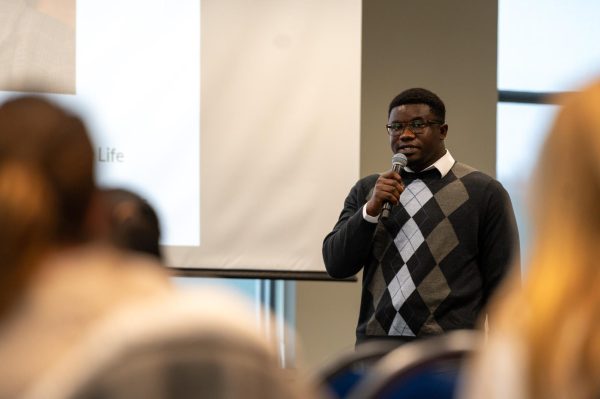
“We received feedback that attendees were very interested in this topic, and learning how book bans and challenges have grown markedly in the United States,” Yanosko said. “Some (attendees) stated our conversation workshop made them consider their comfortability (in) discussing certain sensitive and surprising topics.”
The next Teach-In series is expected to take place in November 2025, but official dates have not yet been released. Prysock said he was proud of his group’s presentation, and is looking forward to the next session of Teach-Ins.
“Many people were surprised (by) how much Avery and I have been through within our educational pursuits,” Prysock said. “A staff member who attended our session (said) our presentation was very powerful and motivating for them. I really loved this, and I hope to do this again.”








